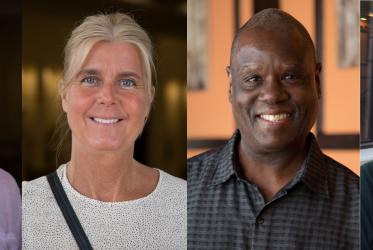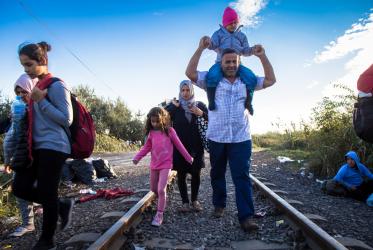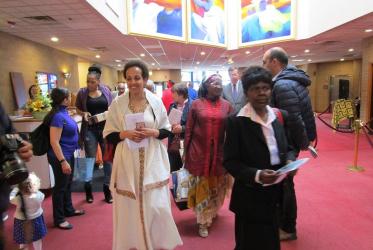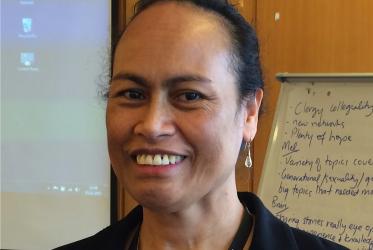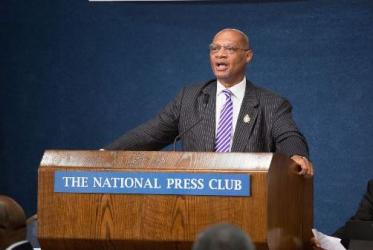Displaying 101 - 120 of 131
07 July 2017
New Executive Committee members elected in Trondheim
28 June 2016
International affairs facilitator reflects on pilgrimage
31 March 2016
Religious leaders as agents of peace in the Americas
02 March 2016
Symposium focuses on religion, violence, extremism
04 February 2016
Church challenge: Welcoming "strangers" in a climate of fear
18 November 2015
Churches call for United States to confront racism
08 September 2015
